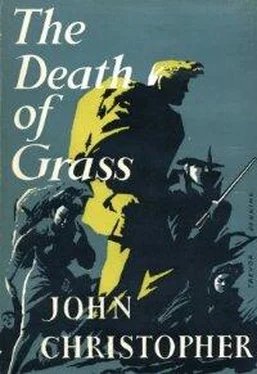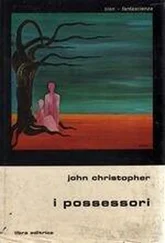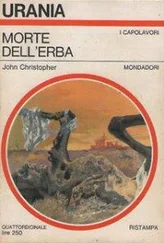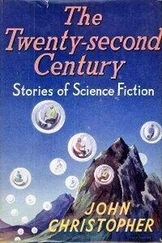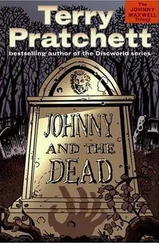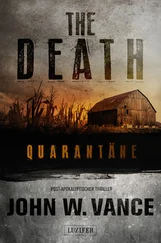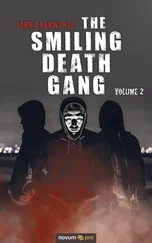“News!”
One of the two car radios was kept permanently in operation. The men walked back to see what it was.
Ann said, as they approached: “It sounds like trouble.”
The announcer’s voice was still suave, but grave as well.
“… further emergency bulletins will be issued as they are deemed necessary, in addition to the normal news readings.
“There has been further rioting in Central London, and troops have moved in from the outskirts to control this and to maintain order. In South London, an attempt has been made by an organized mob to break through the military barriers set up yesterday following the temporary ban on travel. The situation here is confused; fresh military forces are moving up to deal with it.”
“Now that we’re clear,” Roger said, “I don’t mind them having the guts to break out. Good for them.”
The announcer continued: “There are reports of even more serious outbreaks of disorder in the North of England. Riots are reported to have occurred in several major cities, notably Liverpool, Manchester, and Leeds, and in the case of Leeds official contact has been lost.”
“Leeds!” John said. “That’s less good.”
The Government,” the voice went on, “has issued the following statement: ‘In view of disturbances in certain areas, members of the public are warned that severe counter-measures may have to be taken. There is a real danger, if mob violence were to continue, that the country might lapse into anarchy, and the Government is determined to avoid this at all costs. The duty of the individual citizen is to go about his business quietly and to cooperate with the police and military authorities who are concerned with maintaining order.’ That is the end of the present bulletin.”
A cinema organ began to play “The Teddy-Bears’ Picnic” {86} 86 “Teddy-Bears’ Picnic”: popular song of the period reflecting childish innocence
; Ann switched the volume down until it was only just audible.
Roger said: “If we drove all night, we could reach the valley by the morning. I don’t like the sound of all this. It looks as though Leeds has broken loose. I think we’d better travel while the travelling’s good.”
“We didn’t get much sleep last night,” John said. “A night run across Mossdale isn’t a picnic at the best of times.”
“Ann and Millicent can both take a spell at the wheel,” Roger pointed out.
Ann said: “But Olivia can’t drive, can she?”
“Don’t worry about me,” Roger said. “I’ve brought my benzedrine {87} 87 Benzedrine: drug that stimulates the heart and causes sleeplessness
with me. I can keep awake for two or three days if necessary.”
Pirrie said: “May I suggest that we concentrate immediately on getting clear of the West Riding? When we have done that, we can decide whether to carry right on or not.”
“Yes,” John said, “we’ll do that.”
From the top of the bank, the boys called down to them, waving their arms towards the sky. Listening, they heard the hum of aircraft engines approaching. Their eyes searched the clear sky. The planes came into view over the hedge which topped the bank. They were heavy bombers, flying north, at not more than three or four thousand feet.
They watched, in a silence that seemed to shiver, until they had passed right over. They could hear the engines, and the excited chatter of the boys, but neither of these affected the sharp-edged silence of their own thoughts.
“Leeds?” Ann whispered, when they had gone.
Nobody answered at first. It was Pirrie who spoke finally, his voice as calm and precisely modulated as ever:
“Possibly. There are the other explanations, of course. But in any case, I think we ought to move, don’t you?”
When they set off, Davey had joined Steve and Spooks in the Citroen, which was leading the way at this point. The Ford came second, and John’s Vauxhall, carrying now only Mary and Ann in addition to himself, brought up the rear.
Doncaster was sealed off, but the detour roads had been well posted {88} 88 posted: signposted
. Meshed in with an increasing military traffic, they went round to the north-east, through a series of little peaceful villages. They were in the Vale of York; the land was very flat and the villages straggling and prosperous. It was not until they had got back to the North Road that they were halted at a military checkpoint.
There was a sergeant in charge. He was a Yorkshireman, possibly a native of these parts. He looked down at Roger benevolently:
“A.1 closed except to military vehicles, sir.”
Roger asked him: “What’s the idea?”
“Trouble in Leeds. Where were you wanting to get to?”
“Westmorland.”
He shook his head, but in appreciation of their problem rather than negation. “I should back-track on to the York road, if I was you. If you cut off just before Selby, you can go through Thorpe Willoughby to Tadcaster. I should steer well clear of Leeds though.”
Roger said: “There are some funny rumours about.”
“I reckon there are, too,” said the sergeant.
“We saw planes flying up this way a couple of hours back,” Roger added. “Bombing planes.”
“Yes,” the sergeant said. “They went right over. I always feel ’appier being out in the country when things like that are up aloft. Funny, isn’t it—being uneasy when your own planes go over? That lot went right over, but I should stay clear of Leeds, anyway.”
“Thanks,” Roger said, “we will.”
The convoy reversed itself and headed back. The road by which they had come would have taken them south; instead they turned north-east and found themselves, with the military vehicles left behind, travelling deserted lanes.
Ann said: “Our minds can’t grasp it properly, can they? The news bulletins, the military check-points—they’re one kind of thing. This is another. A summer evening in the country—the same country that’s always been here.”
“A bit bare,” John said. He pointed to the grassless hedgerows.
“It doesn’t seem enough,” Ann said, “to account for famine, flight, murder, atom bombs…’ she hesitated; he glanced at her, “… or refusing to take a boy with us to safety.”
John said: “Motives are naked now. We shall have to learn to live with them.”
Ann said passionately: “I wish we were there! I wish we could get into the valley and shut David’s gate behind us.”
“Tomorrow, I hope.”
The lane they were in wound awkwardly through high-hedge country. They dropped back behind the others’ cars—Pirrie’s Ford, with a surprising degree of manoeuvrability, hung right on to the Citroen’s heels. As the Vauxhall approached a gatehouse {89} 89 gatehouse: small building in which the signalman would operate the signals and the gates at the level crossing
, standing back from the road, the crossing gates slowly began to close.
Braking, John said: “Damn! And a ten-minute wait before the train even comes in sight, if I know country crossings. I wonder if they might be persuaded to let us through for five bob.”
He slipped out of the car, and walked round it. To the right, a gap in the hedge showed the barren symmetrical range of hills which were the tip for a nearby colliery. He put his head over the gate and looked along the line. There was no sign of smoke, and the line ran straight for miles in either direction. He walked up to the gate-house, and called:
“Hello, there!”
There was no immediate reply. He called again, and this time he heard something, but too indistinct to be an answer. It was a gasping, sobbing noise, from somewhere inside the house.
The window on to the road showed him nothing. He went round on to the line, to the window that looked across it. It was easy enough to see, as he looked in, where the noise had come from. A woman lay in the middle of the floor. Her clothes were torn and there was blood on her face; one leg was doubled underneath her. About her, the room was in confusion—drawers pulled out, a wall clock splintered.
Читать дальше
